Dealing with rehabilitation after struggling with addiction is hard enough on its own, but being isolated in quarantine is making life harder for many trying to avoid a relapse. Feeling trapped with nothing but your own thoughts is terrifying for many who are trying to get past their addictions. Feeling like you don’t have a support network to rely on makes rehab much harder.
How can you avoid relapsing while in quarantine, and what can you do if you do go through a relapse?
Getting through your addiction is hard, but there are things that you can do to stay on track. Follow these simple tips to avoid relapsing and what you should do if you end up relapsing again.
How COVID Is Affecting People with Addictions
COVID is unfortunately causing many individuals that are struggling with their addictions to relapse. This is mostly due to stress caused by the disease; with most businesses still shut down, people are out of work and struggling to get by. The stress that this creates causes addicts to want to go back to their previous vices in the hope that it will help them escape the stress.
These relapses can set addicts back in their recovery process by months or even years. Even people who have managed to remain sober for years may find themselves craving a chance to go back to substance abuse.
Relapses can cause serious injuries and even result in death by overdose. Many people forget what their tolerance levels were after being sober for years, or don’t realize that their bodies can’t tolerate as much as they once could.
It’s also more difficult now for people struggling with addiction to get treatment since they can’t go to proper rehab facilities. Instead, most are going through online therapy sessions or group events.
Avoiding a Relapse
While COVID may be causing a rise in relapses, there are ways to avoid yourself from relapsing. Here are some of the ways that you can continue your addiction recovery.
Know the Signs
When it comes to relapsing, there are certain signs that you should watch out for. Some signs that you may be close to a relapse include, but are not limited to:
- An increase in stress or anxiety
- You’ve started to deny your addiction
- Changes in your mood or attitude, including an unwillingness to continue your recovery or feelings of loneliness and depression
- Thinking fondly of a time when you abused substances
- Isolating yourself from your support system
- Thinking you can use just one more time without becoming addicted
If you notice yourself or a loved one experiencing any of these symptoms, you should start refocusing on your or their treatment plan. Make sure that there is open communication and keep in contact with your support network at all times and be honest about your symptoms with them.
Communicate Your Feelings
While speaking with your friends or family, it’s important to keep them in the loop about how you’re feeling. Let them know your mood and about your daily activities to keep them informed. They are your greatest allies through a difficult time, so make sure you’re honest and open with them.
If you start to slip, then your friends will be able to help you as long as you communicate regularly. Remember that it’s ok to ask for help, and sharing your feelings is nothing to be ashamed of.
Practice Self Care
During quarantine, it’s crucial that you take good care of yourself. Pay attention to your needs; shower regularly, take hot baths to relax, and make sure you eat healthy foods. Even if you are low on energy, you should always make sure that you’re taking care of yourself!
Get High-Quality Sleep
Getting poor sleep can increase your stress levels and make your recovery process more difficult. Make sure you’re sleeping enough and getting good quality sleep when you do rest.
Keep Yourself Busy and Active
While you’re in quarantine, it’s important for you to schedule out your daily activities and keep your schedule full. By giving yourself plenty of things to do, you can avoid thinking about your addiction and keep yourself from relapsing.
Keeping yourself physically active is one great way to fill up your schedule. You can also make time for talking with friends and family or try to find a job where you can work from home.
Know Your Triggers
Triggers are phrases, images, or ideas that cause you extreme emotional pain or that bring up bad memories. Knowing what could trigger you to relapse and avoiding it is important for your recovery. Make yourself aware of your triggers, and inform your friends and family of them as well so that they don’t accidentally trigger you.
Keep in Contact with Friends and Family
Isolation can cause people to feel alone in their struggles or overwhelmed by the world. You should make sure that you make time to talk to your friends and family while you’re in isolation, whether it’s through phone calls or video chats.
Find New Hobbies and Enjoy Old Hobbies
Are there any hobbies that you had to give up in the past, or new hobbies that you’ve always wanted to try? Now is a great time to pick up a hobby for yourself!
Whether you want to try baking or learn a new skill, you can use this newfound free time to get into something you enjoy. Use these hobbies to fill up your schedule with fun activities for yourself and enjoy your time at home!
Enjoy Time Online
The Internet is something that many people are relying on during quarantine, both for work and for fun. Spend some time browsing the Internet to keep yourself entertained and informed.
Of course, you’ll want to be careful as you browse. Social media and politics can be especially triggering for recovering addicts, so use your Internet wisely.
How to Cope After a Relapse During Quarantine
Anyone can relapse, no matter how long they’ve been sober. Here are some of the ways that you can cope after a relapse while you’re in quarantine.
Keep Moving Forward
It’s easy to feel like a failure after a relapse, and you may feel like you should give up on recovery as a whole. However, no matter the reason for your relapse, you should still move forward with your recovery. Yes, relapse is awful, but believing you are incapable of moving past this one relapse will severely undermine your recovery process.
This doesn’t mean that you should disregard your relapse; pay attention to it, and learn from it. Figure out what triggered you to relapse so that you know better for the future, and inform your loved ones about the incident so that they can help you through it.
Reflect on Your Mental Health
How were you feeling during the time of your relapse? Were you especially stressed, angry, or upset? Use this time after your relapse to identify what happened and reflect on yourself. Only then will you be able to move forward with your recovery.
Get Treatment
You’ll need to report your relapse to your counselor, doctor, and anyone else who is helping you through your recovery process. They will need to know that you’ve had a relapse in order to help you with a new treatment and recovery plan.
Get Serious About Your Recovery
COVID may be preventing us from doing a lot of things, but there are ways that you can improve your recovery process. After a relapse, it’s crucial that you get serious about your recovery; spend more time talking with your friends and family and attend any recovery meetings that you normally would. You may even want to consider attending extra recovery meetings or reaching out to other groups for people struggling with addiction.
In order to recover, you will need to make a conscious effort to stay sober. Keep yourself accountable for your actions and make a concentrated effort towards your recovery.
Speak with a Professional
Many drug and alcohol addiction counselors are available through online sessions. If you’re struggling to deal with your relapse, you may want to consider talking with someone online. They can help you work through any deep-rooted issues you’re experiencing and give you additional advice on coping.
Get Through the Hard Days Easier
Addiction is a difficult thing to work through, and the fear of relapse always hangs in the air. By following these tips, however, you can work to prevent relapse and be more prepared if you do find yourself relapsing.
Are you struggling with an addiction and need help? Are you worried about a friend or family member who suffered from addiction?
We’re here to help. Contact us with any questions or concerns you have about addiction today.


